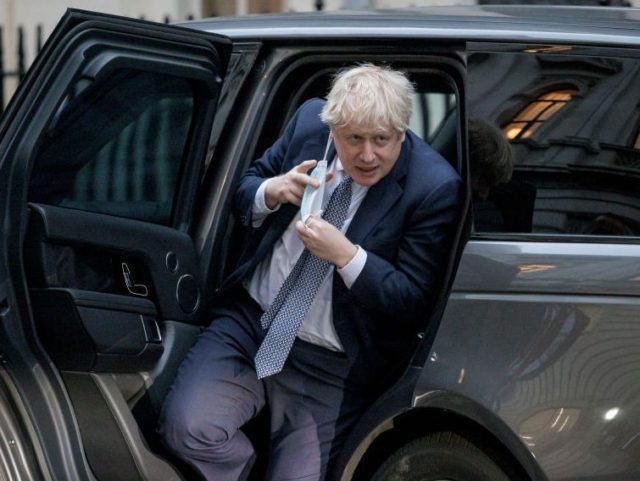Britain’s governing and media class stepped up to full-blown crisis mode on Wednesday as rumours circulated that the much-anticipated inquiry into lockdown-breaking parties at at the heart of government was set to the published imminently.
The inquiry into a series of events held at Downing Street during the United Kingdom’s interminable coronavirus lockdowns, conducted by senior civil servant Sue Gray, is claimed to now be complete and ready to report, The Times of London reports. Betraying impatience at the speed at which the report is being released, The Telegraph stated Wednesday morning that “Sue Gray’s report into “partygate” has still not been handed to Downing Street”.
The fact the Prime Minister has not yet, it is claimed, read the report into the alleged breaking of rules by the rule-makers during coronavirus lockdowns may mean he will be able to avoid answering potentially tough questioning during Wednesday afternoon’s regular Prime Minister’s Questions session in Parliament.
Also reflecting the anxiety in Westminster to read the report, the left-leaning Guardian notes in their politics liveblog that: “[the report] may be published later today. Or it may not come until tomorrow. As I write, to the immense frustration of the Westminster political-media establishment, and many others, no one actually knows.”
Even when the report is seen by the Prime Minister, it is claimed, the full version may not be released to the public as sensitive details about the inner workings of government could present “security issues”, it was claimed by government minister Liz Truss this morning. Nevertheless, Truss said, the government was committed to publishing the “findings of the report”.
What exactly will happen once the report’s content is known is unclear. A separate police investigation has now been launched and while that continues to run, may benefit the government as it could give ministers further breathing space to refuse comment, citing the ongoing police inquiry.
However, if the police report implicates the Prime Minister, or even if the police decide to fine the PM, opposition Labour figures have claimed that would make Boris Johnson’s position “untenable“.
There is no automatic process to remove a Prime Minister from power in this circumstance, however, and despite the opposition Labour party saying the Prime Minister should stand down, a lot of power remains in his hands.
Boris Johnson, even after the controversy of recent weeks, still commands a hefty majority in the House of Commons, and could look back to the January 2019 Labour-led vote of no confidence in Theresa May which she survived despite leading a minority administration. With his sizable majority, the Prime Minister could hope to see off such a vote and by a wider margin, unless he was faced with a considerable backbench rebellion.
Theresa May also survived a vote of no-confidence launched from within her own party in December 2018. While rebels within the Conservative party today could probably gain enough support to trigger a vote against Johnson, the internal rules of the Conservative party for deposing leaders means the threshold for calling a vote is much lower than the number needed for a successful ouster. A leader that survives a vote of no confidence is also protected by the party rules from facing another one for 12 months, and rebels will know showing their hand too early could hand Johnson a year of immunity from backbench plotting.
Nevertheless, allies of the Prime Minister are moving to remind rebels of what is at stake by challenging Boris Johnson’s leadership. Jacob Rees-Mogg, a loyal lieutenant to the Prime Minister floated the idea Wednesday morning that the way the unwritten British constitution had evolved in recent decades essentially left the country with a “presidential” system, where the mandate of the Prime Minister was personal, not party-based.
While the comments may have passed as an ephemeral frippery, the warning to Conservative plotters was clear: deposing Boris Johnson would mean triggering a snap general election with Labour ahead in the polls, and your job as a Westminster representative might very well vanish with it.

COMMENTS
Please let us know if you're having issues with commenting.